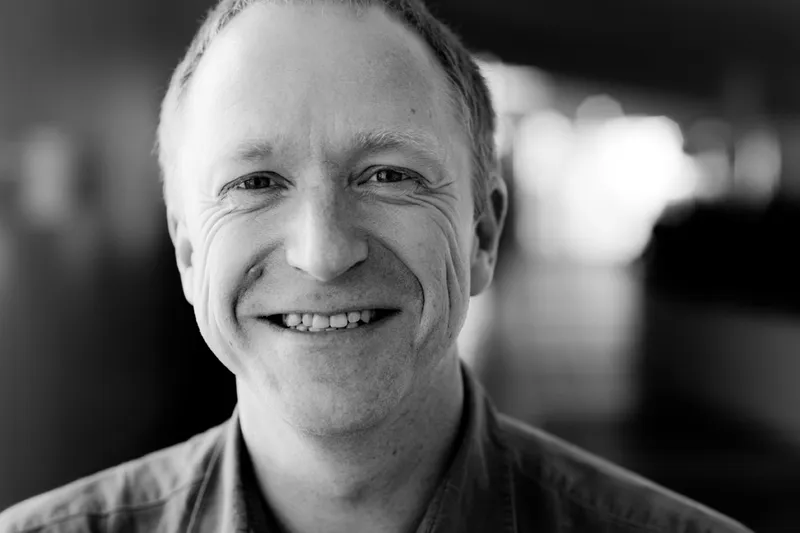Specialisterne, a Denmark social enterprise, aims to provide jobs to 1 million autistic people
Autism affects 70 million people worldwide. In India, the figure is 10 million even though many people with autism have not been diagnosed and as a result do not receive the care and service they need. According to global statistics, one in every 88 children today is born with autism spectrum disorder against a ratio of one in 110 a few years back.
Sonne Thorkil, founder of Specialisterne and Specialist People Foundation, a Danish social entrepreneur,started working in this sector after his son was diagnosed with autism. “My story started 13 years ago, when my youngest son was diagnosed with autism. It was such a shock because at home, when he was in his comfort zone, he was like his siblings, but in the kindergarten he was at a loss and was completely another person.” This moved him to solve the needs of autistic people. “I came up with the idea of creating this comfort zone in the school system and the labour market, so that people with autism, like my son, will not be seen as a problem. We can help these people, who do not fit into the mainstream and also help the corporate sector to get skills that are very important for them,” says Sonne.
It wasn’t an easy task. “I created Specialisterne that is based on the idea of helping people with autism by identifying spaces/work where they perform well. But we faced many challenges. One is that I had to leave my job and start my own company. That was something I had never done and I needed to mortgage my house, since banks were not as passionate about this idea as I was. They asked me for an exit strategy, but I didn’t have one. Moreover in Denmark, people are used to paying high taxes so that the government can take care of people with disabilities, and they didn’t understand why I wanted to start a social enterprise. But thanks to the media, our story came out and spread. That lowered the barriers and helped us connect with different stakeholders,” says Sonne.
Sonne is not just a social entrepreneur, he is also a father. And his love for his son is what is moving him and a lot of other parents as well. “There are a lot of parents who are fighting for their children’s future. In most countries,society creates barriers for children with special needs, and parents need to fight these more than others. But there is enormous power in parents and passionate people. Instead of putting the onus on parents to find suitable opportunities for their autistic children, we should instead make the society and the world in general do that for them. We can then change the paradigm. That’s where social entrepreneurship can make the difference. That’s about creating a business model to sustain a social issue. I believe that social entrepreneurs and big corporations can work together to create a much more inclusive society. We don’t have to wait for the government we can do something about it ourselves,” says Sonne.

Specialisterne is an important social enterprise that is achieving multiple impacts. “Through our analysis we can say that it is a good investment for the government to train people and give them some skills that will allow them to contribute to society. That’s true also for the corporate sector, since it is difficult to find people who are highly motivated and skilled to do tasks that require good memory, attention to details, and perseverance in repetitive tasks.This is not just true for the IT sector, but in any business area. At least five percent of all tasks will fit very well. It’s very good for the business sector and it is a life-changing experience for the families as well. People with autism can become self-sufficient and parents can be free of this constant concern,” says Sonne.
According to him, they have set a goal to enable one million jobs for people with autism and similar disabilities. “Obviously we cannot realize it just in Denmark(its population is barely 5 million), but we have to look at the whole world where around one percent of the population is autistic. This means 70 million people have this disability and we have to see it with a global perspective. Thanks to globalisation, all companies have similar needs and we can serve them. Right now we are working in 11 countries and I relocated my company to the US, because there are huge opportunities and high needs there,” adds Sonne.
He has also some great insight about India. “I have been to India three times before and I have seen huge opportunities here. It’s one of the IT hubs and there is a lack of skilled resource in the corporate sector. I’m sure that out of a population of 1.3 billion people a lot of them can benefit from our services.”
What can India learn from Specialisterne? “For sure that people with disabilities can be of great value tothe corporate sector.They just have to meet the needs of an autistic individual and provide them with a personal comfort zone in the company. Obviously they have to adapt, but if they do that, the payback is phenomenal. But I would also turn the question and say what the western part of the world can learn from India? In a country with not a great welfare system it is up to the stakeholders to come together and find solutions. That’s exactly what is happening in the India Inclusion Summit,” adds Sonne.







